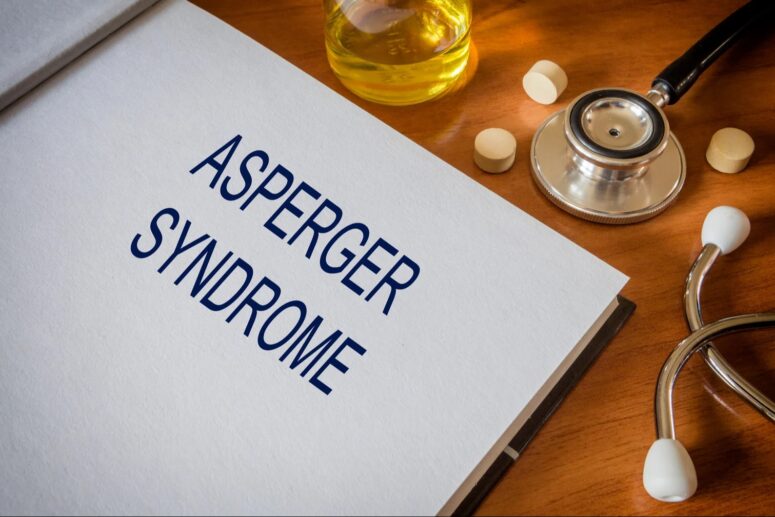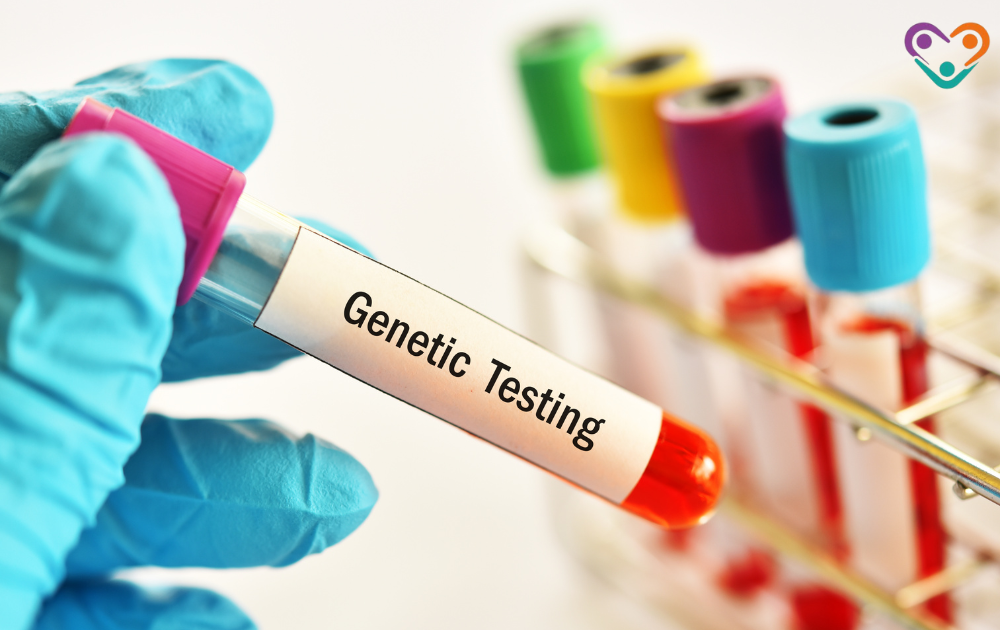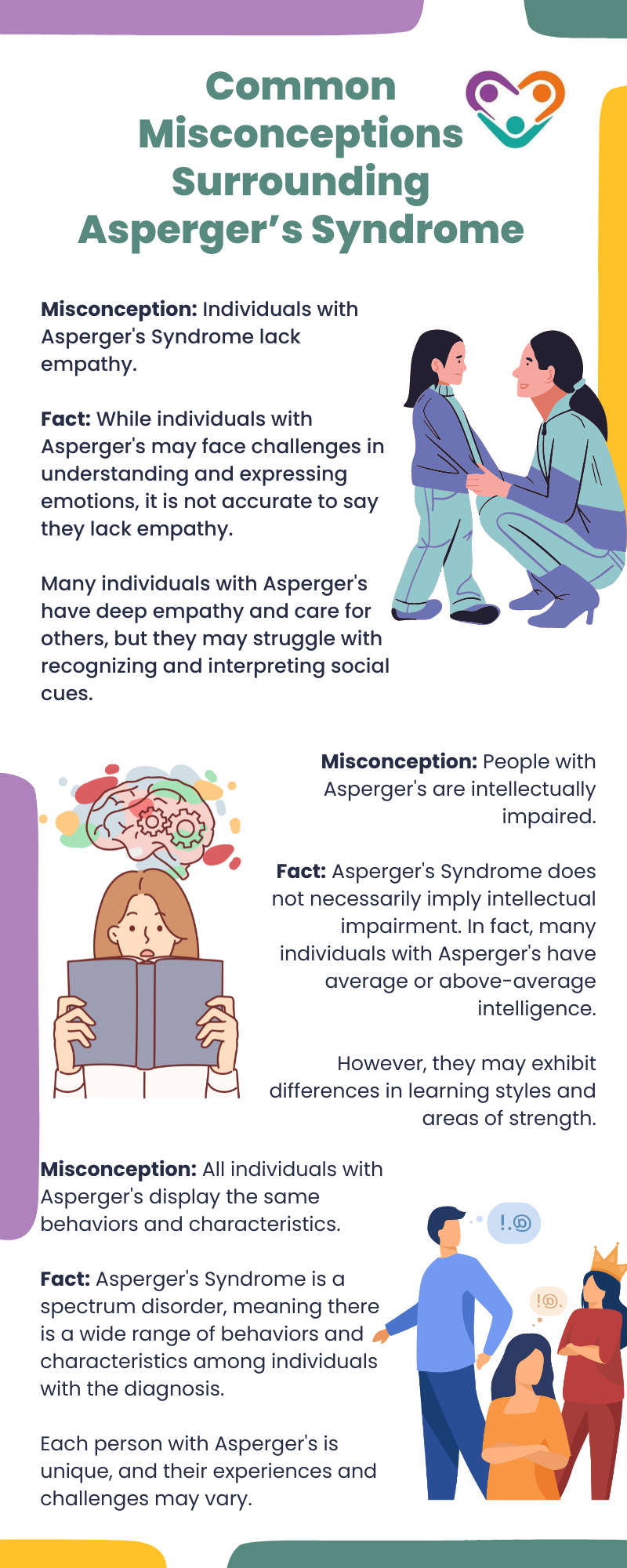
Table of Contents
Asperger’s Syndrome is a neurodevelopmental condition that impacts social communication and behavior. Austrian pediatrician Hans Asperger first identified it in the 1940s after observing unique behavioral patterns in children.
These patterns included difficulties in social interaction, restricted interests, and repetitive behaviors.
In 2013, the Diagnostic and Statistical Manual of Mental Disorders (DSM-5) reclassified Asperger’s Syndrome as a subtype of Autism Spectrum Disorder (ASD). This change aimed to streamline diagnostic criteria and promote a more comprehensive understanding of the condition.
This means that Asperger’s Syndrome is now considered part of the broader ASD, encompassing a range of conditions characterized by challenges in social interaction, communication, and behavior.
This brings us to the question: what exactly causes Asperger’s syndrome? Let’s find out!
Genetic Factors as a Contributing Factor
When it comes to understanding the underlying causes of Asperger’s syndrome, genetic factors play a significant role. After all, Asperger’s syndrome is a neurodevelopmental condition that affects social communication and behavior.
It was previously classified as a separate disorder but is now considered a subtype of autism spectrum disorder (ASD).
According to research, there is a strong genetic component to Asperger’s syndrome. Studies have identified mutations in many genes, including those involved in brain development and brain cell communication, that could be associated with autism spectrum disorder (ASD).
In other words, having an autistic sibling significantly increases the chances of receiving an autism diagnosis.
Also, parents in their mid-to-late 30s and above at the time of conception have a higher likelihood of having a child with autism. Boys are also four times more likely to receive an autism diagnosis than girls.
These findings suggest a genetic predisposition to Asperger’s syndrome.
Genetic Mutations and Autism Spectrum Disorder
In addition to the overall genetic contribution to Asperger’s syndrome, specific genetic disorders can also contribute to the development of ASD. Disorders that affect single genes, such as fragile X syndrome (FXS) and tuberous sclerosis, have been linked to autism.
For example, in one study, around 20% of females and half of males with FXS met the criteria for autism.
The genetic factors involved in Asperger’s syndrome highlight the importance of genetic counseling and understanding family medical history. Identifying genetic mutations and risk factors can aid in early diagnosis and intervention strategies for individuals with Asperger’s syndrome.
Environmental Influences
While the exact causes of Asperger’s syndrome and other forms of Autism Spectrum Disorder (ASD) are still not fully understood, research suggests that environmental factors also contribute to the development of these conditions.
Maternal infections during pregnancy have been identified as one of the environmental factors associated with autism spectrum disorders, including Asperger’s syndrome.
Based on research, certain infections during pregnancy may increase the risk of a child developing ASD. It’s important to note that not all maternal infections lead to ASD, but studies have found an association between certain infections and an increased likelihood of ASD in offspring.
Toxins and Brain Development
Exposure to toxins during pregnancy has also been linked to the development of autism spectrum disorders, including Asperger’s syndrome.
Environmental factors such as smoking, air pollution, pesticides, and other chemical substances have been identified as potential risk factors. These toxins may interfere with normal brain development, potentially leading to the development of ASD.
It is worth noting that the factors causing Asperger’s syndrome are likely to be a combination of genetic and environmental variables. The interaction between these factors can influence changes in brain development, resulting in Asperger’s syndrome.
As such, it’s important to understand that Asperger’s syndrome is not caused by a person’s upbringing, social or economic circumstances, or the person’s fault.
However, further research is needed to fully comprehend the specific mechanisms through which these environmental factors contribute to the development of Asperger’s syndrome and other forms of ASD.
Neurobiological Aspects
Understanding the neurobiological aspects of Asperger’s Syndrome is crucial in unraveling the underlying causes of this condition.
Research suggests that the causes of Asperger’s Syndrome may be a combination of genetic and environmental variables. However, psychological evaluations have revealed abnormalities in the connections between various regions of the brain in individuals with ASD, including Asperger’s Syndrome.
Specifically, there are differences in the connections between the cerebral cortex, the amygdala (emotional regulation center), and the limbic system, which impact emotional processing.
The exact mechanisms behind these brain differences are still being studied. However, it is believed that disruptions in early brain development play a significant role.
These disruptions may affect the formation and functioning of neural circuits involved in social communication, empathy, and sensory processing.
Asperger’s vs. Autism Spectrum Disorder
While Asperger’s Syndrome is now classified within Autism Spectrum Disorder, it is important to note the distinctions between the two.
Previously, individuals with Asperger’s were identified as having “high-functioning autism” due to their preserved language and cognitive abilities. However, this terminology is now considered outdated.
ASD encompasses a spectrum of conditions that range from mild to severe. Asperger’s Syndrome is often associated with individuals who have average to above-average intelligence and do not exhibit significant language delays. People with Asperger’s typically have an intense focus on specific interests and struggle with social communication and interaction.
The merging of Asperger’s Syndrome into the ASD diagnosis has enabled a broader understanding of the condition and facilitated more targeted interventions and support.
However, it is worth noting that the term “Asperger’s” is still commonly used in both professional and general contexts, as it helps to differentiate individuals with ASD who have average or above-average intelligence and language skills.
Debunking Common Misconceptions
There are several misconceptions surrounding Asperger’s Syndrome that can perpetuate misunderstandings and stigma. Let’s examine and debunk some of them:
The Controversy Around Vaccines
One of the most widely debated topics related to autism, including Asperger’s Syndrome, is the alleged connection between vaccines and the development of the condition.
However, it is crucial to understand that this controversy has been extensively studied and debunked by scientific research.
Numerous large-scale studies have been conducted to investigate any potential link between vaccines and autism. The overwhelming consensus among scientific experts is that there is no credible evidence to support the claim that vaccines cause autism or Asperger’s Syndrome.
The original study that suggested such a link has been retracted, and subsequent research has failed to find any causal relationship.
Vaccines are a crucial tool in preventing infectious diseases and have been proven to be safe and effective. Immunization not only protects individuals but also contributes to community immunity, safeguarding those who can’t receive vaccines due to medical reasons.
Therefore, it’s important to rely on scientifically grounded information when making decisions about vaccination and to consult with healthcare professionals for accurate information.
Sources:
https://www.nationwidechildrens.org/conditions/aspergers-syndrome
https://www.news-medical.net/health/Asperger-Syndrome-Causes.aspx
https://psychcentral.com/autism/what-causes-aspergers-syndrome
https://www.mentalandhealthawareness.com/support-articles/what-is-aspergers
- Autism Routine Disruption in Adults: Coping Tips - July 16, 2024
- Autism and Obsession: An Overview - July 16, 2024
- Autism and Taking Clothes Off: Management Tips - July 16, 2024



